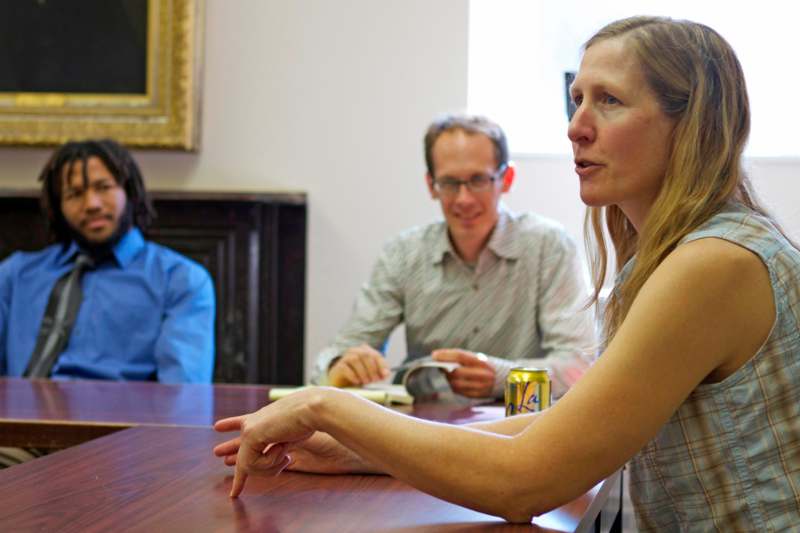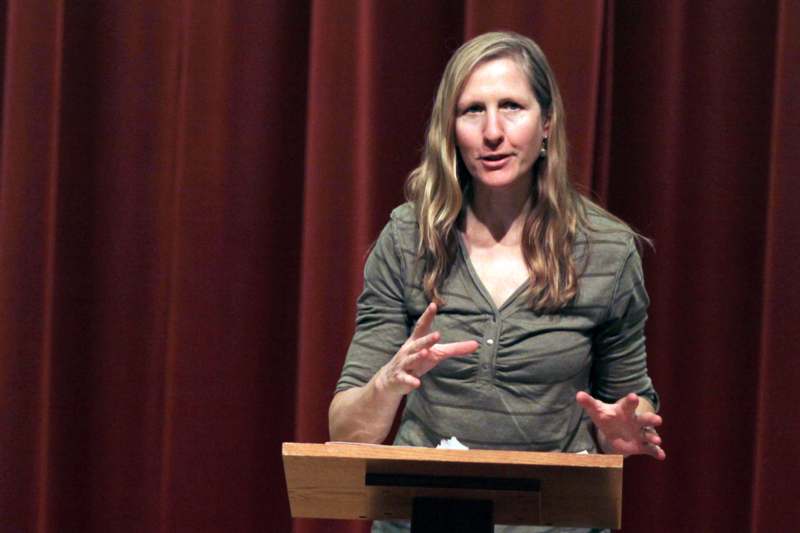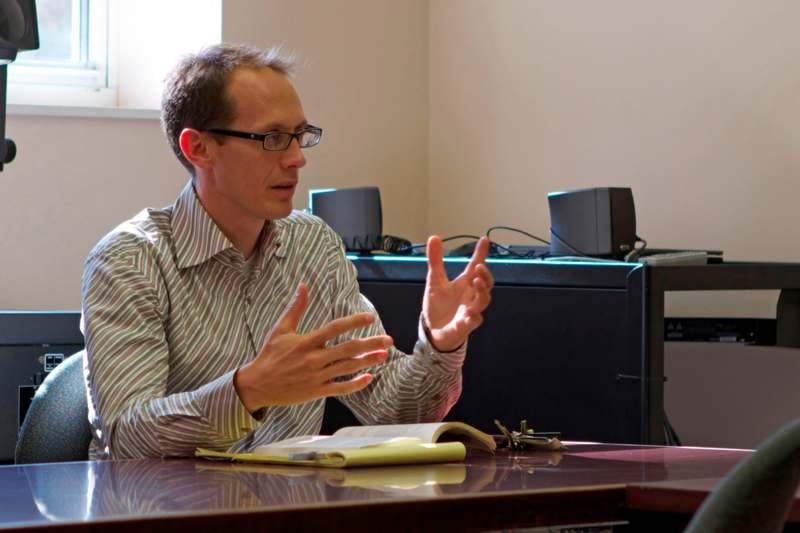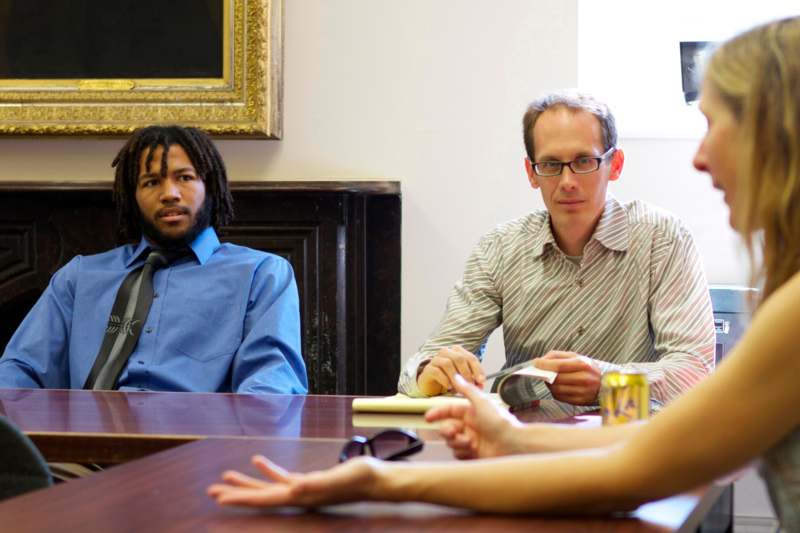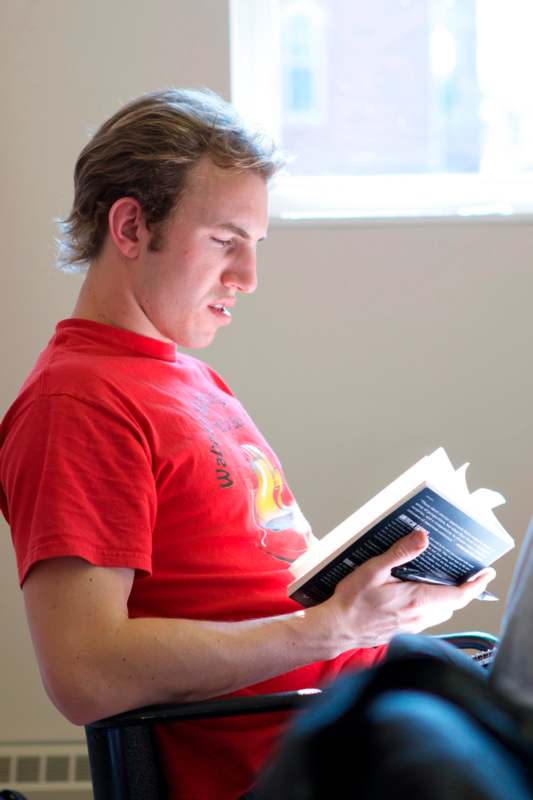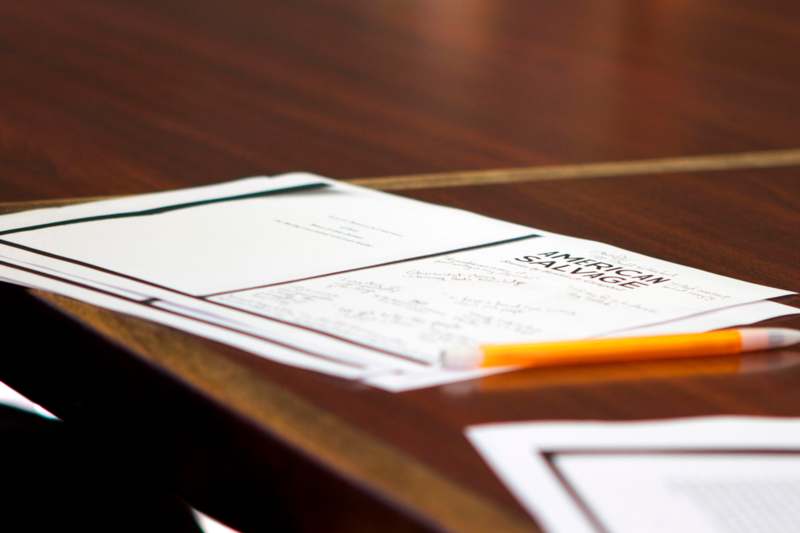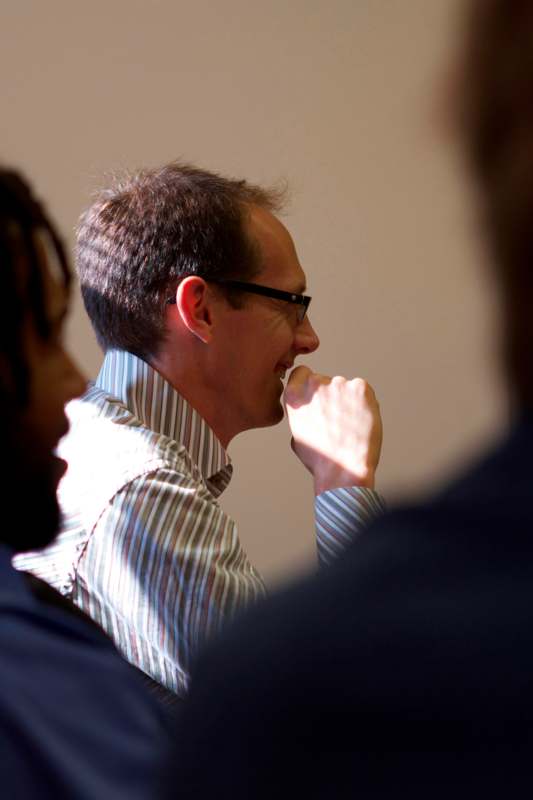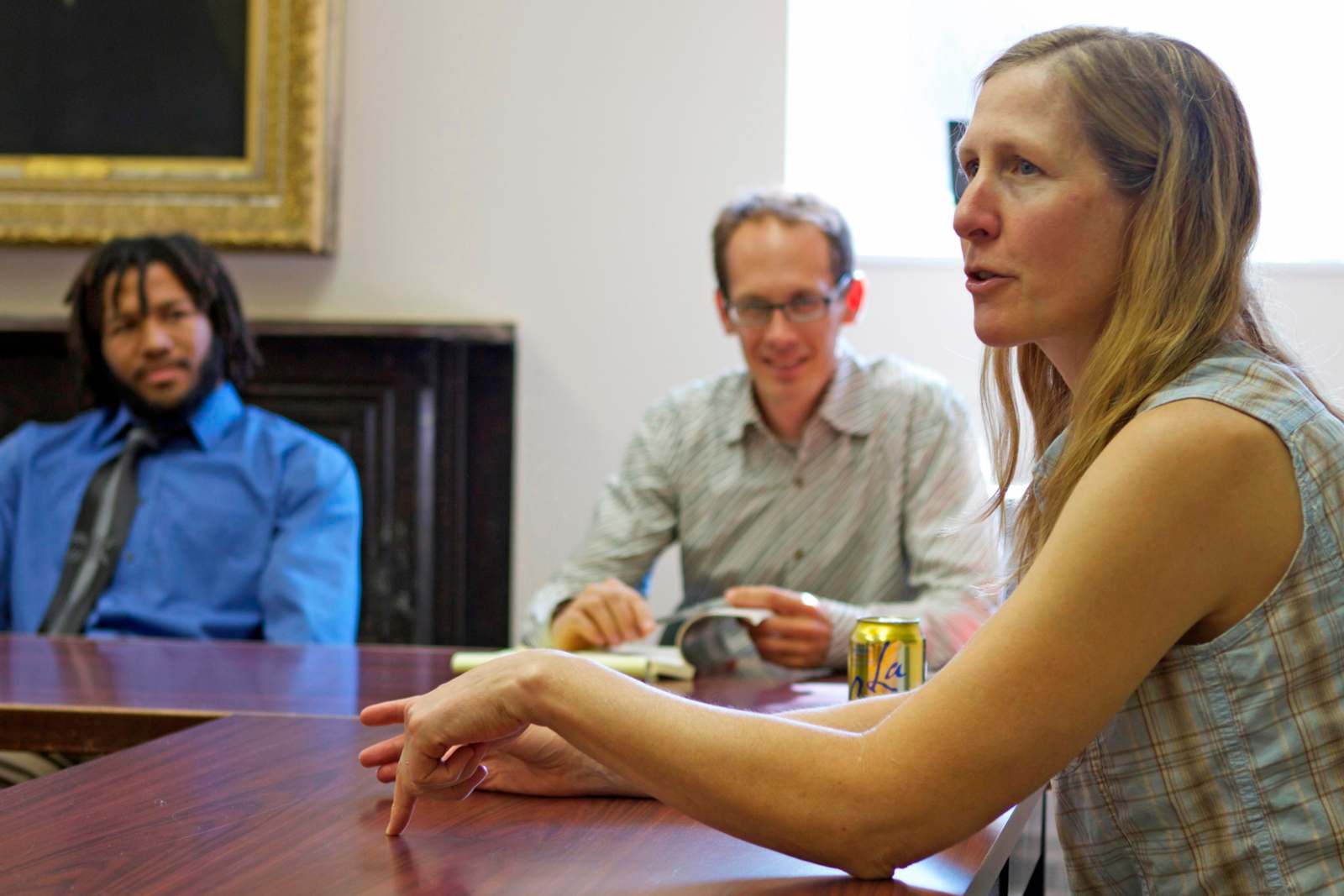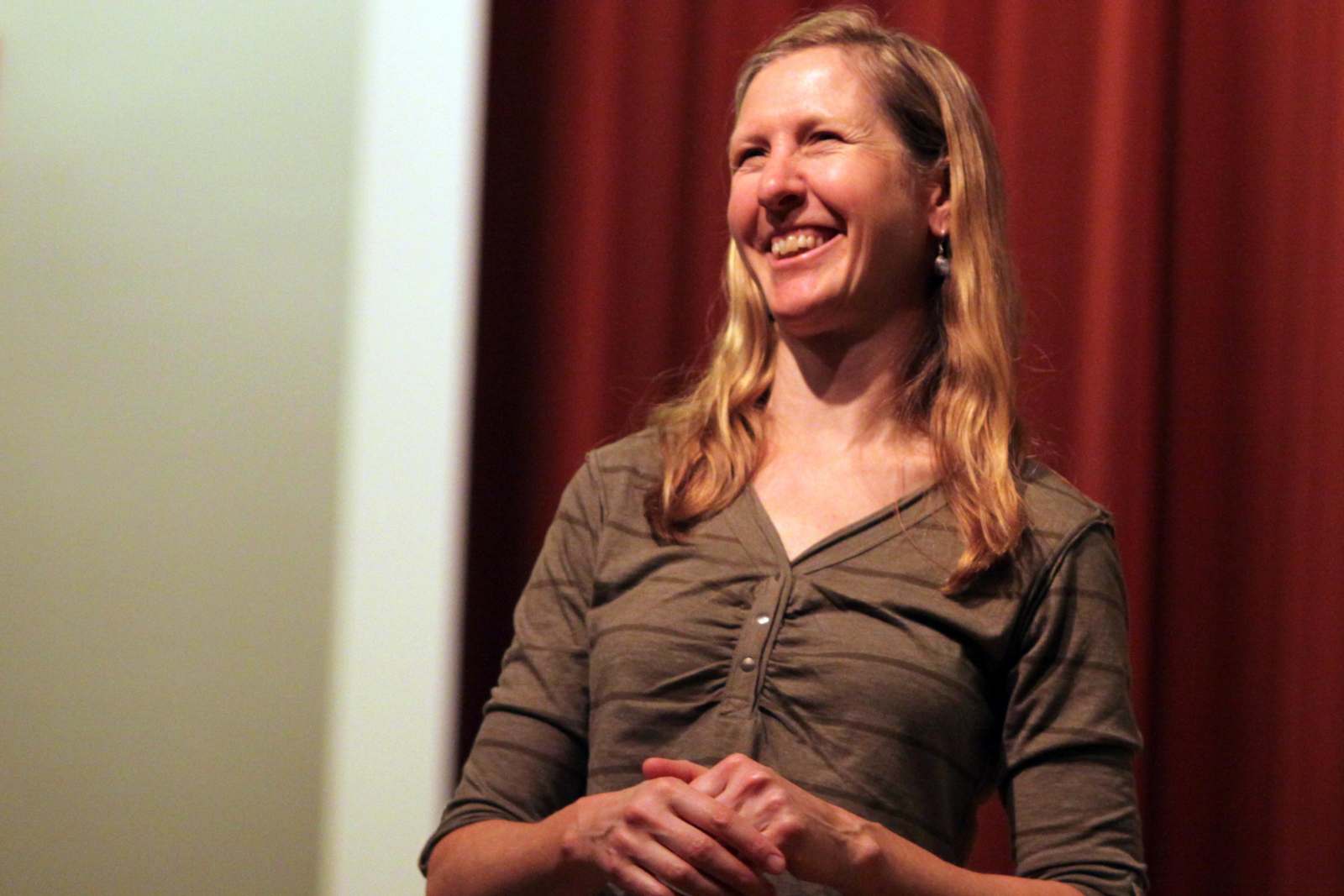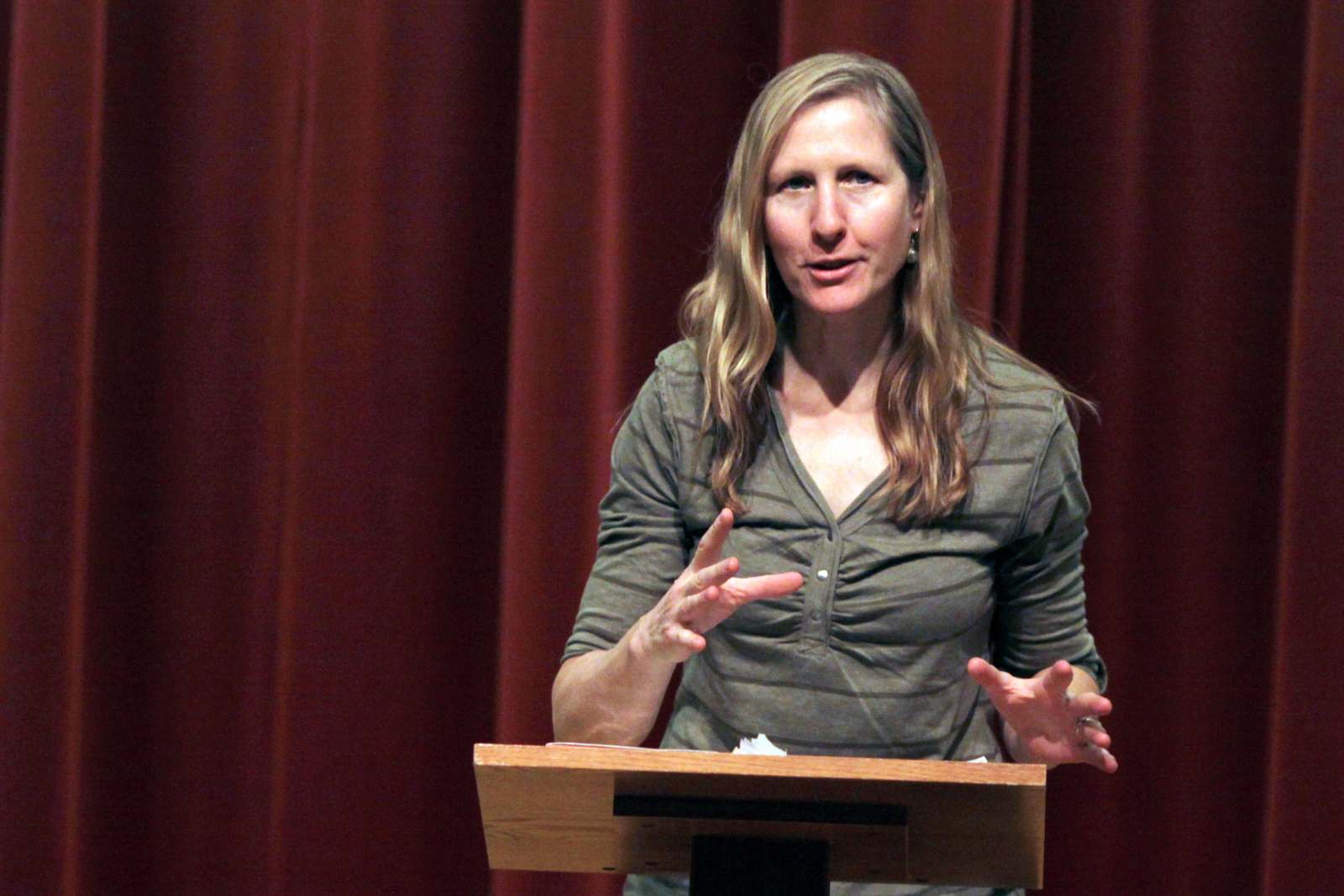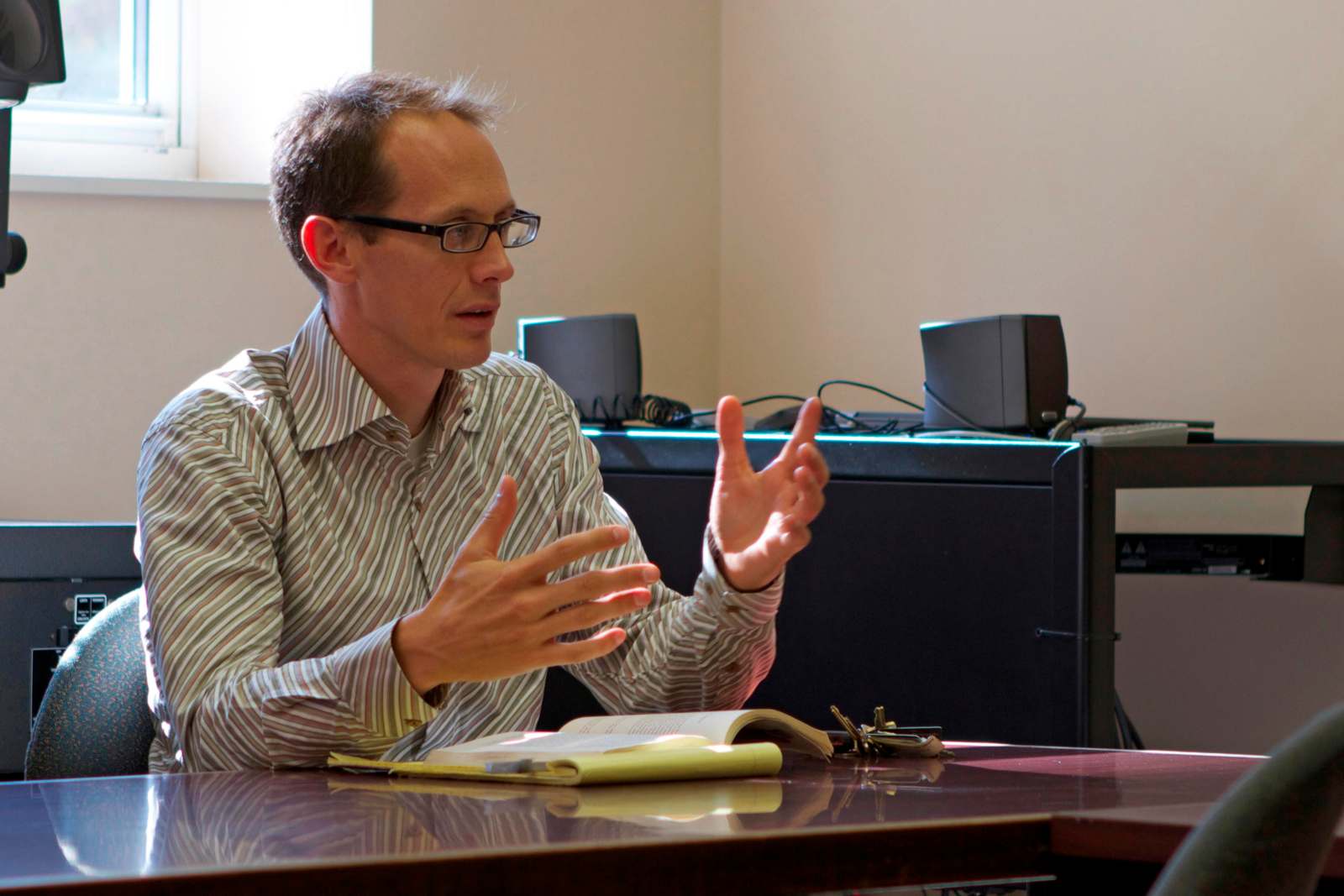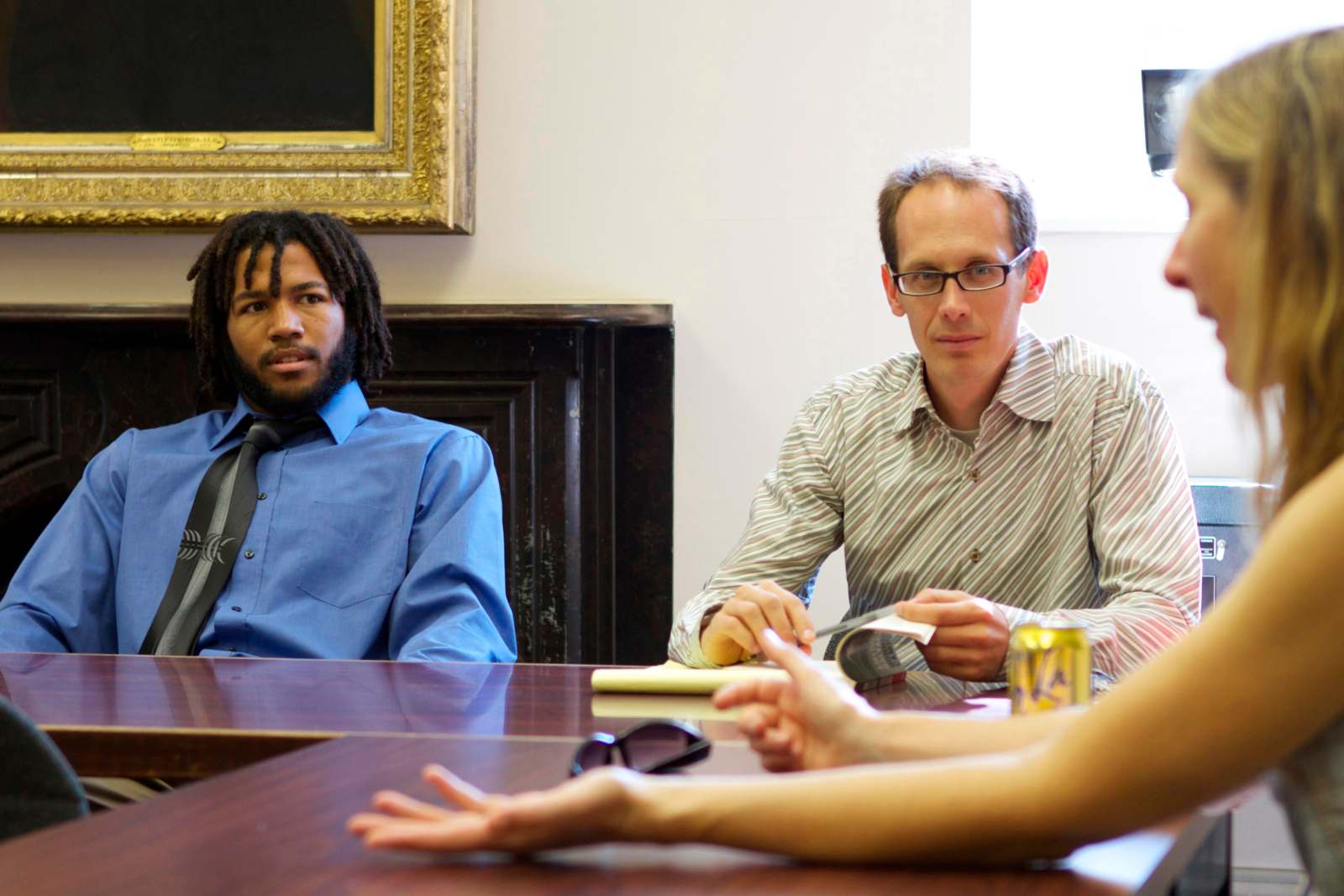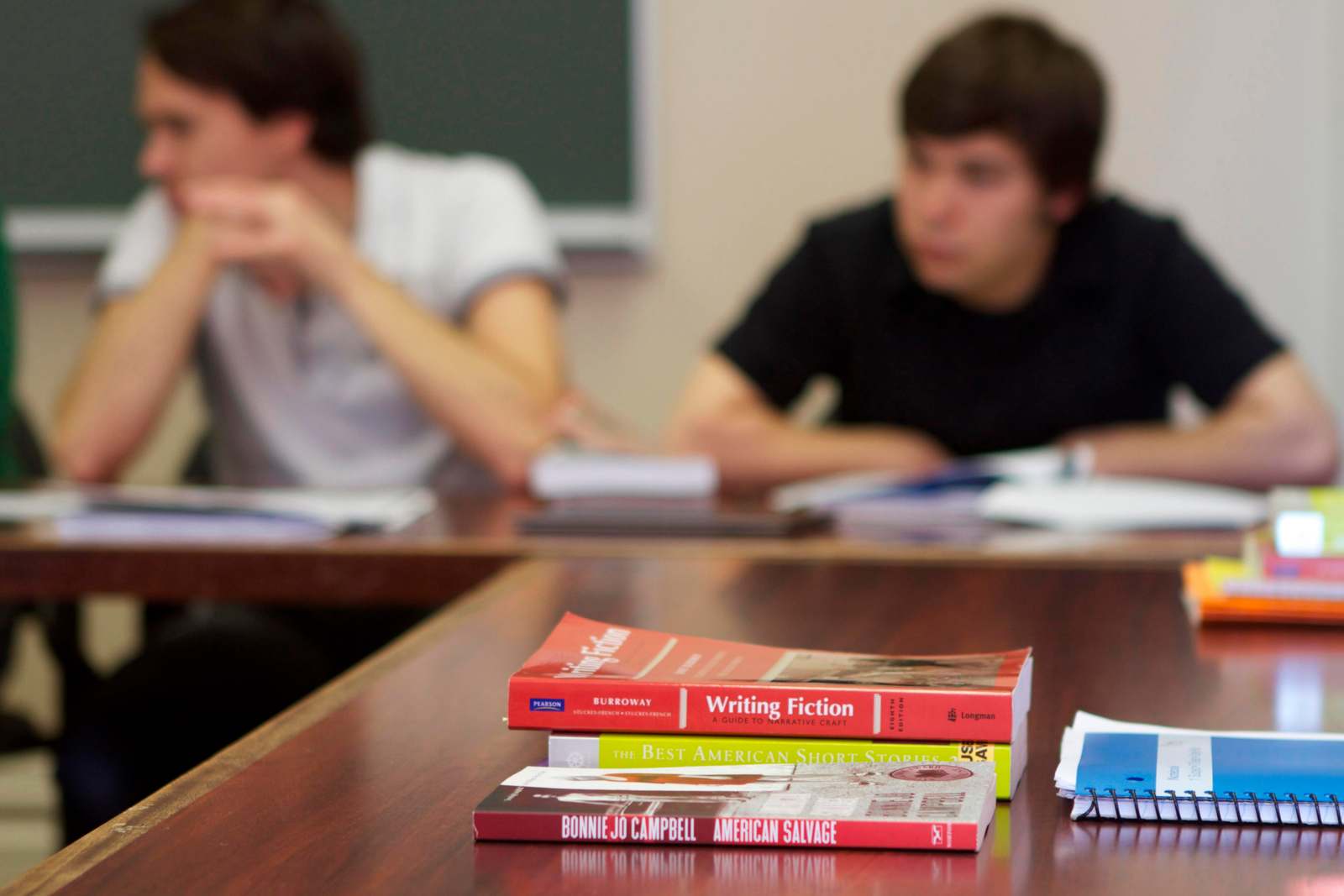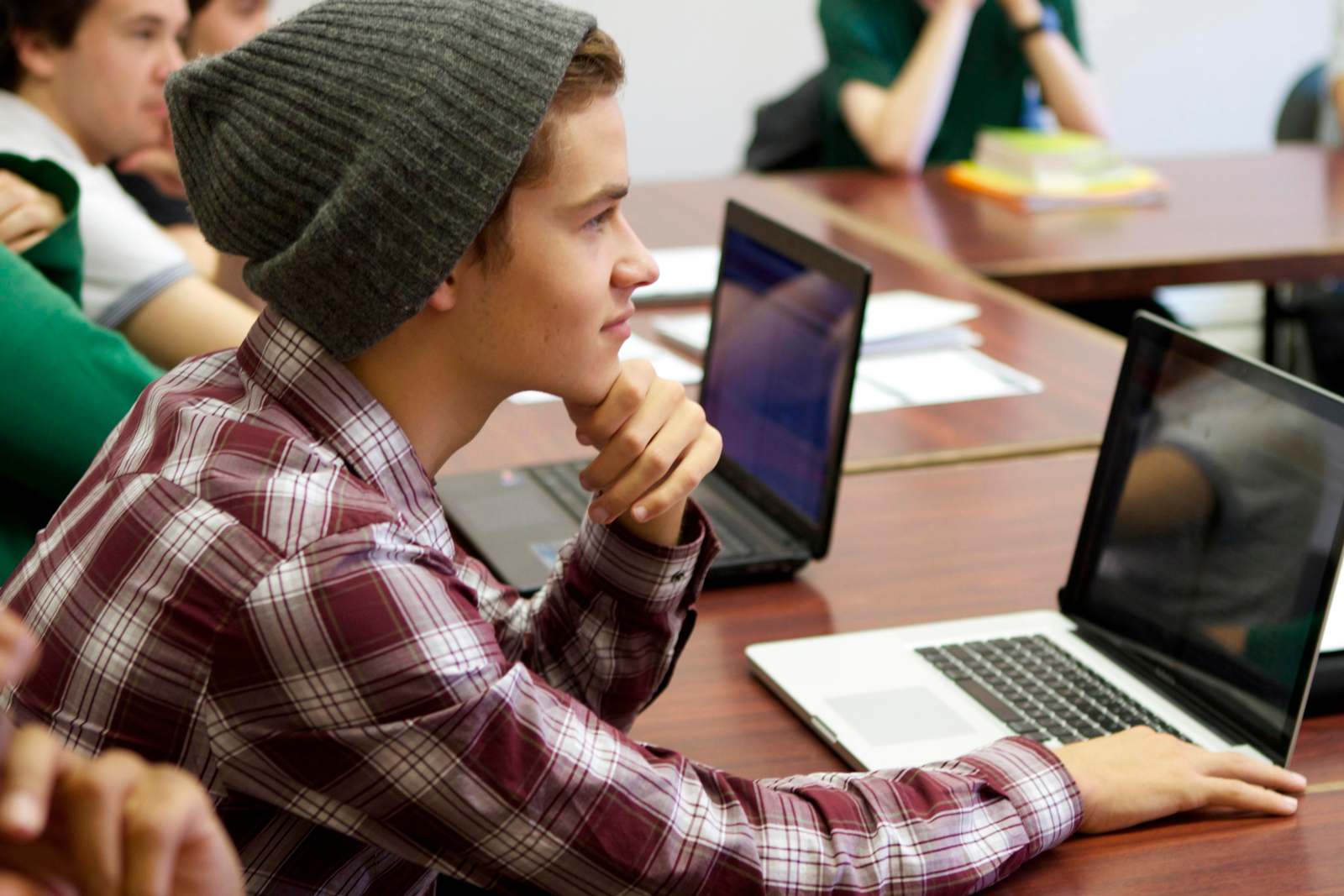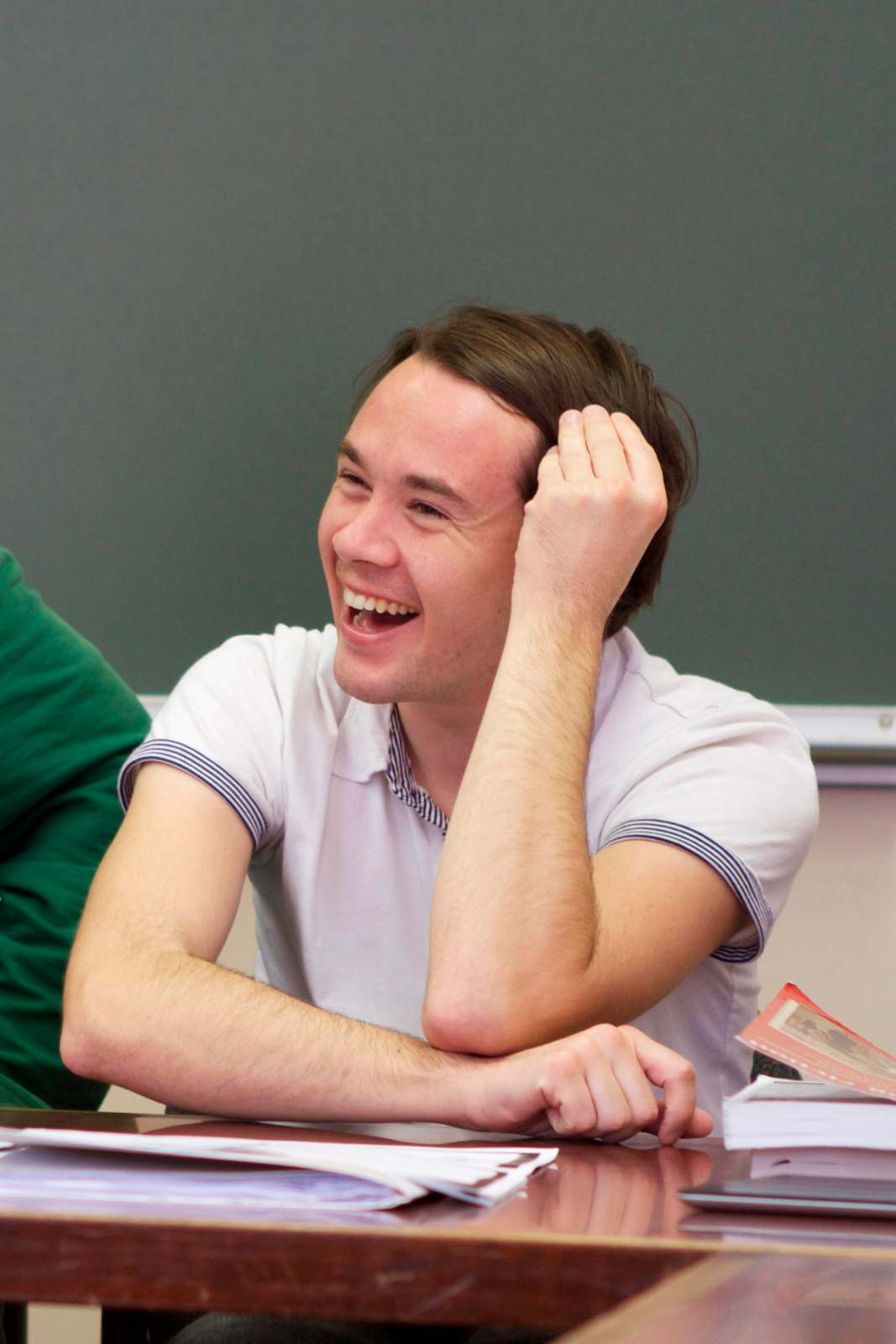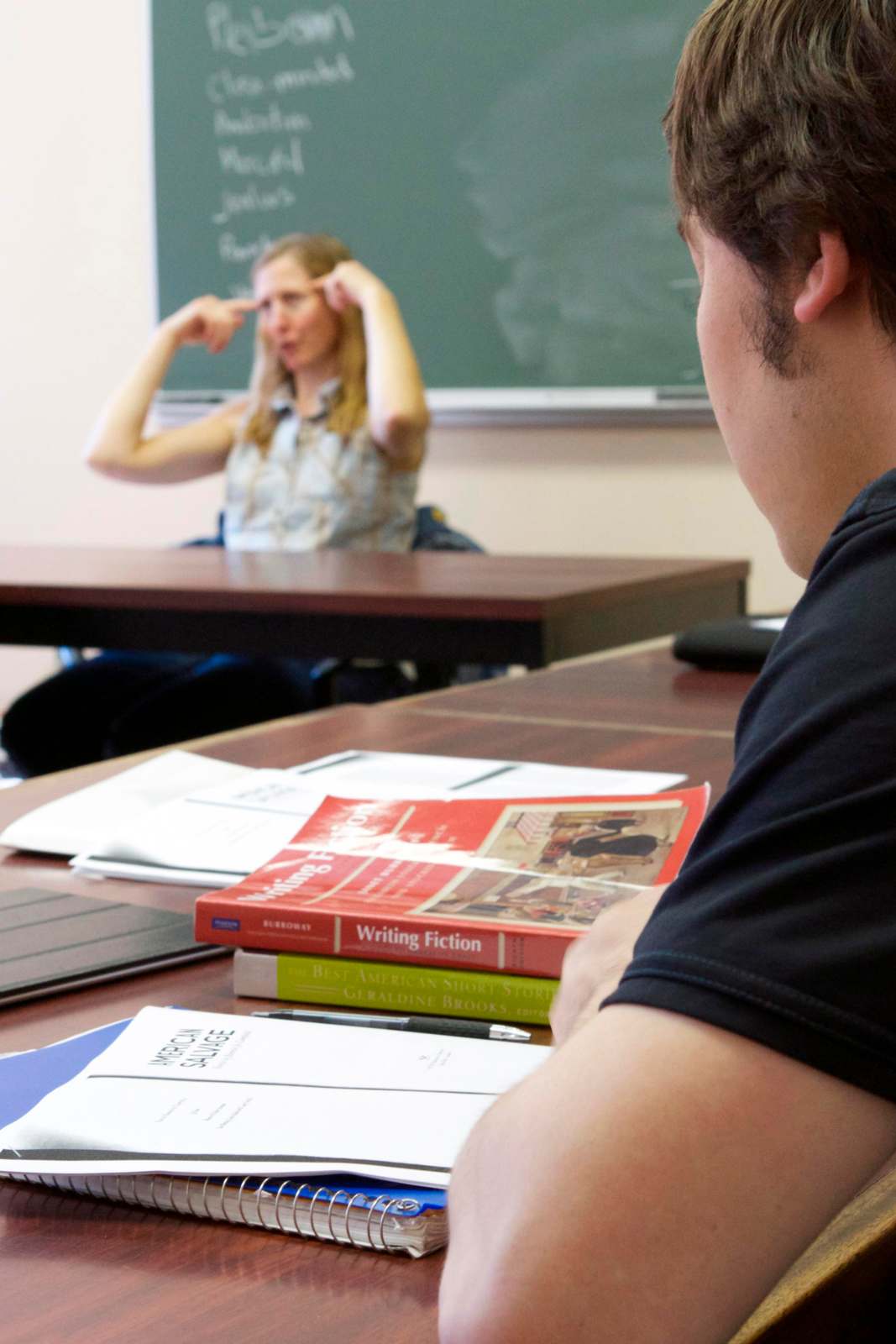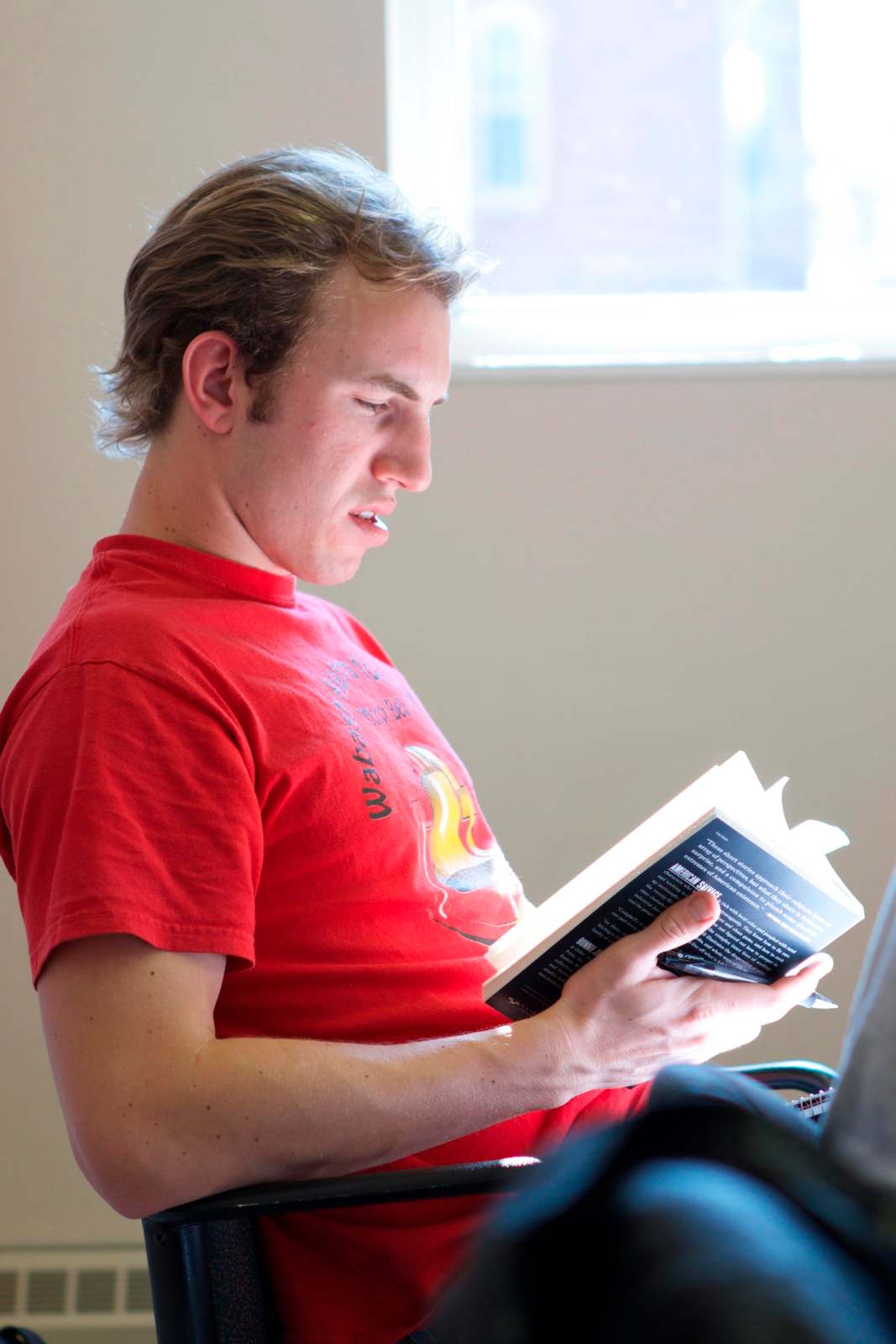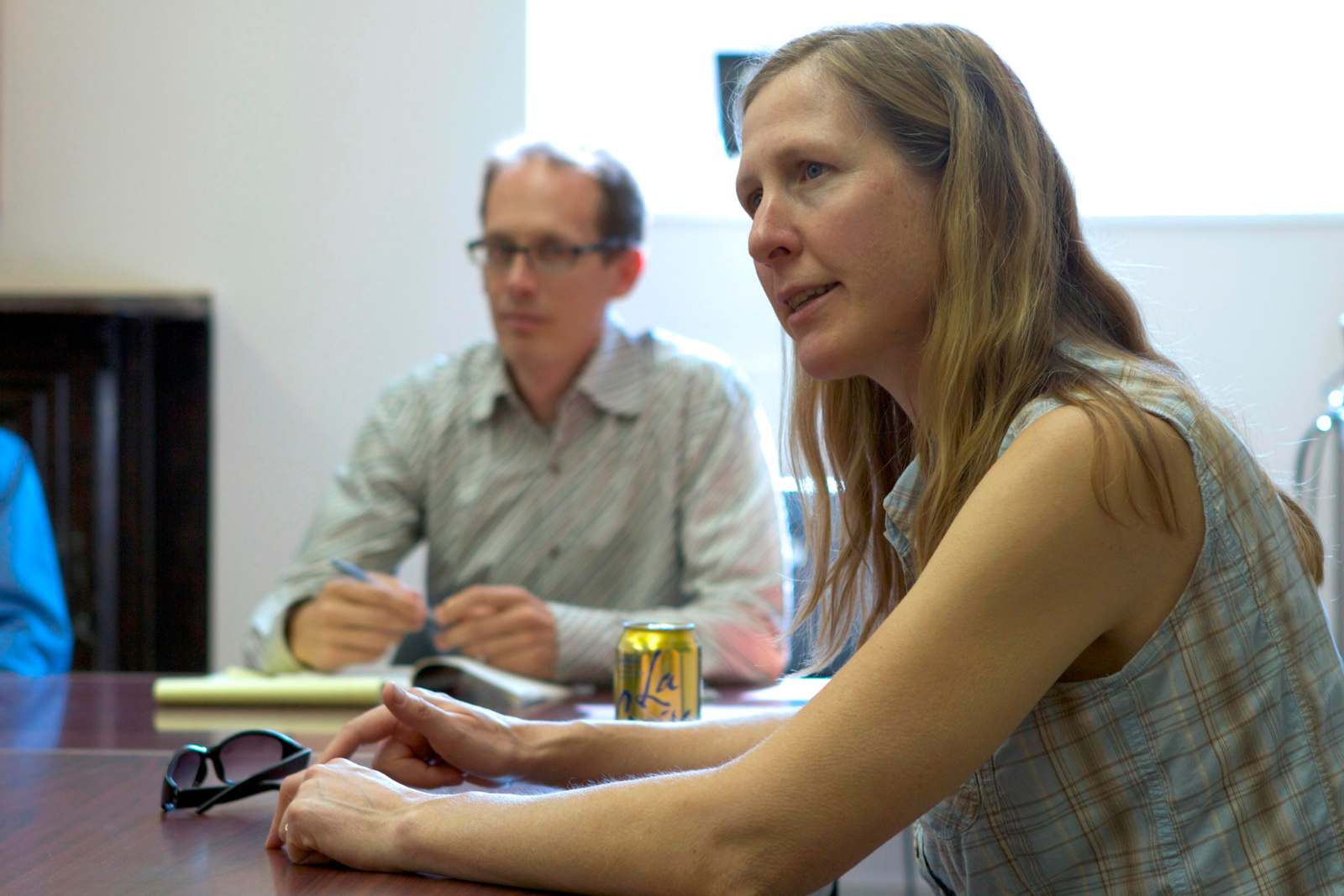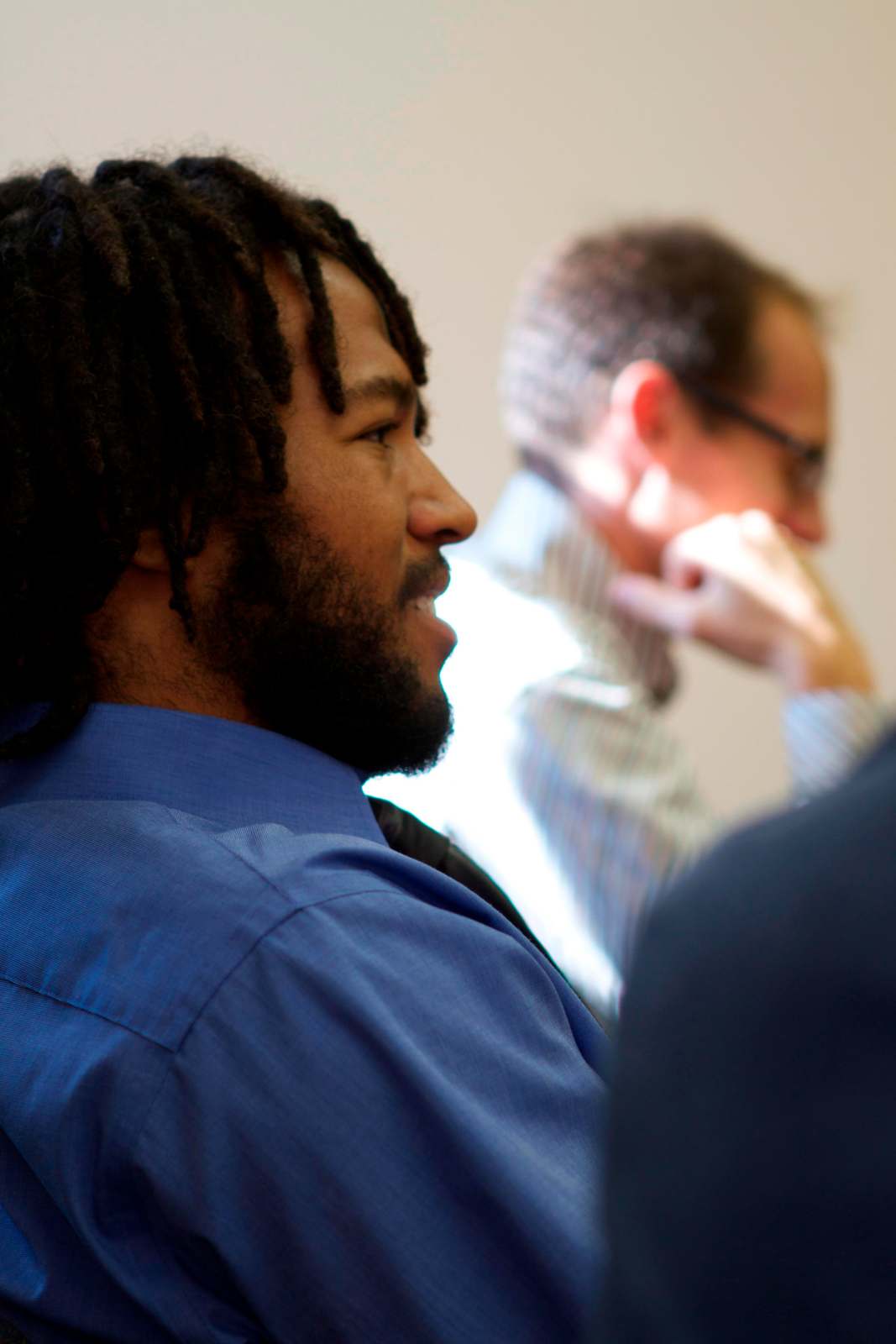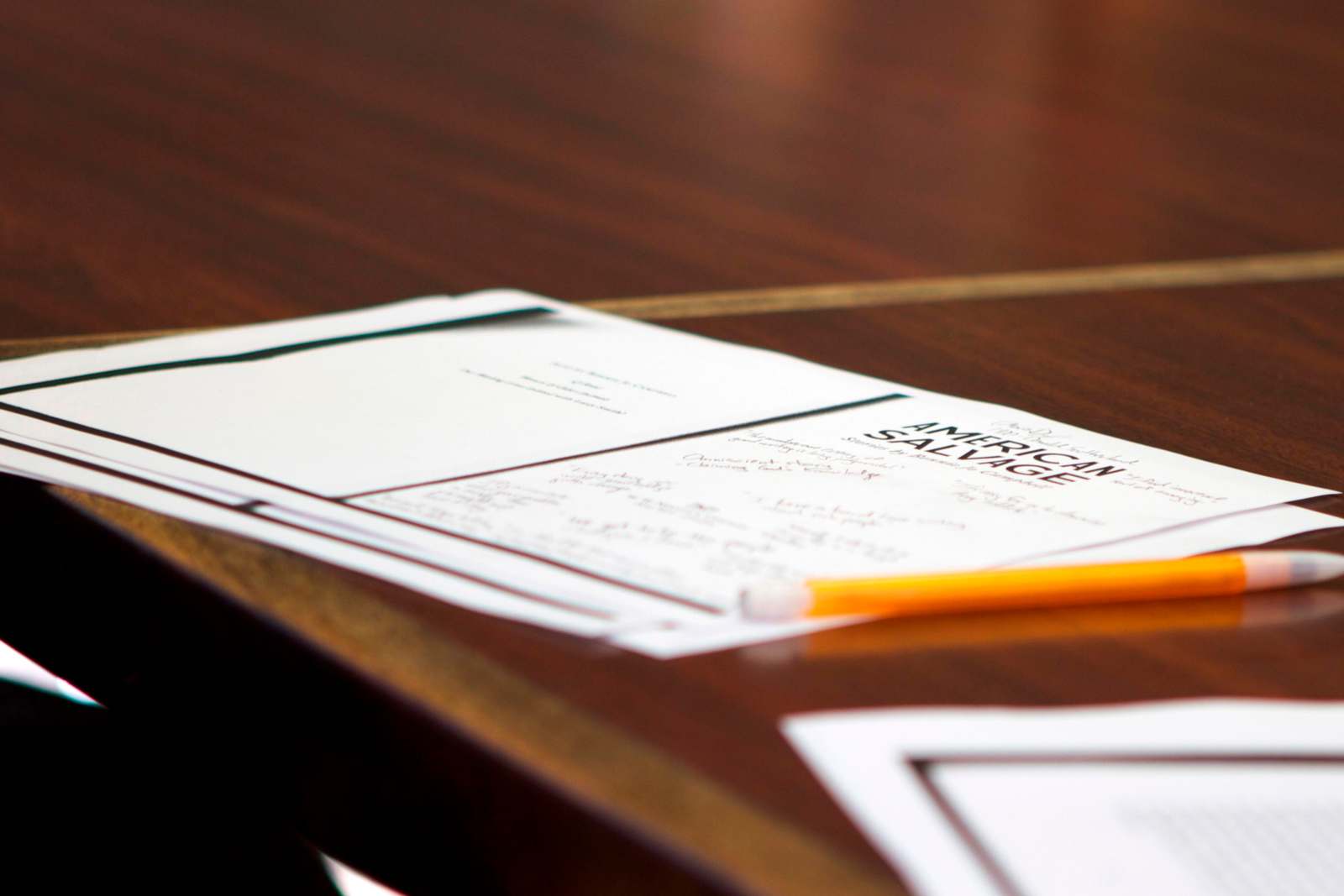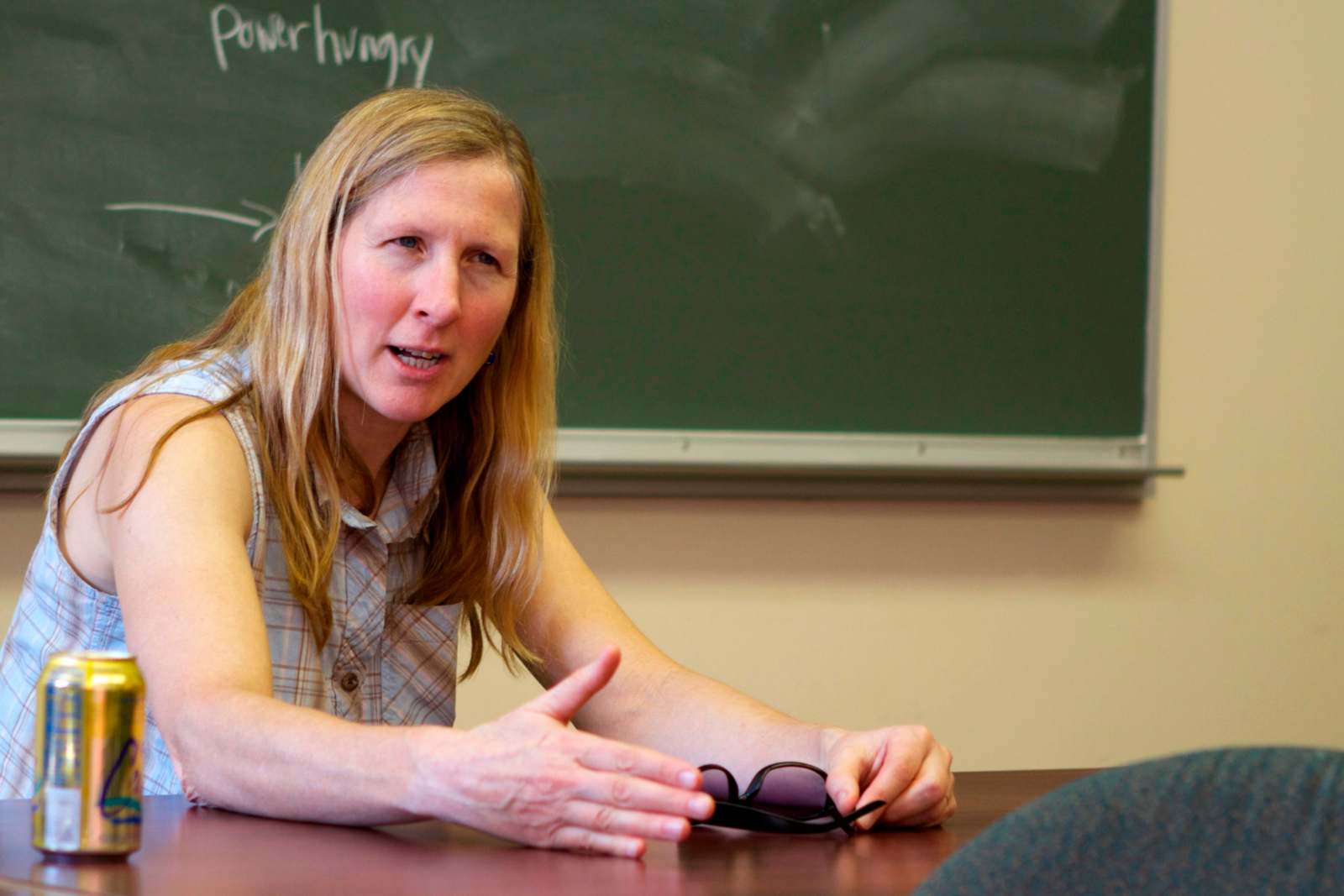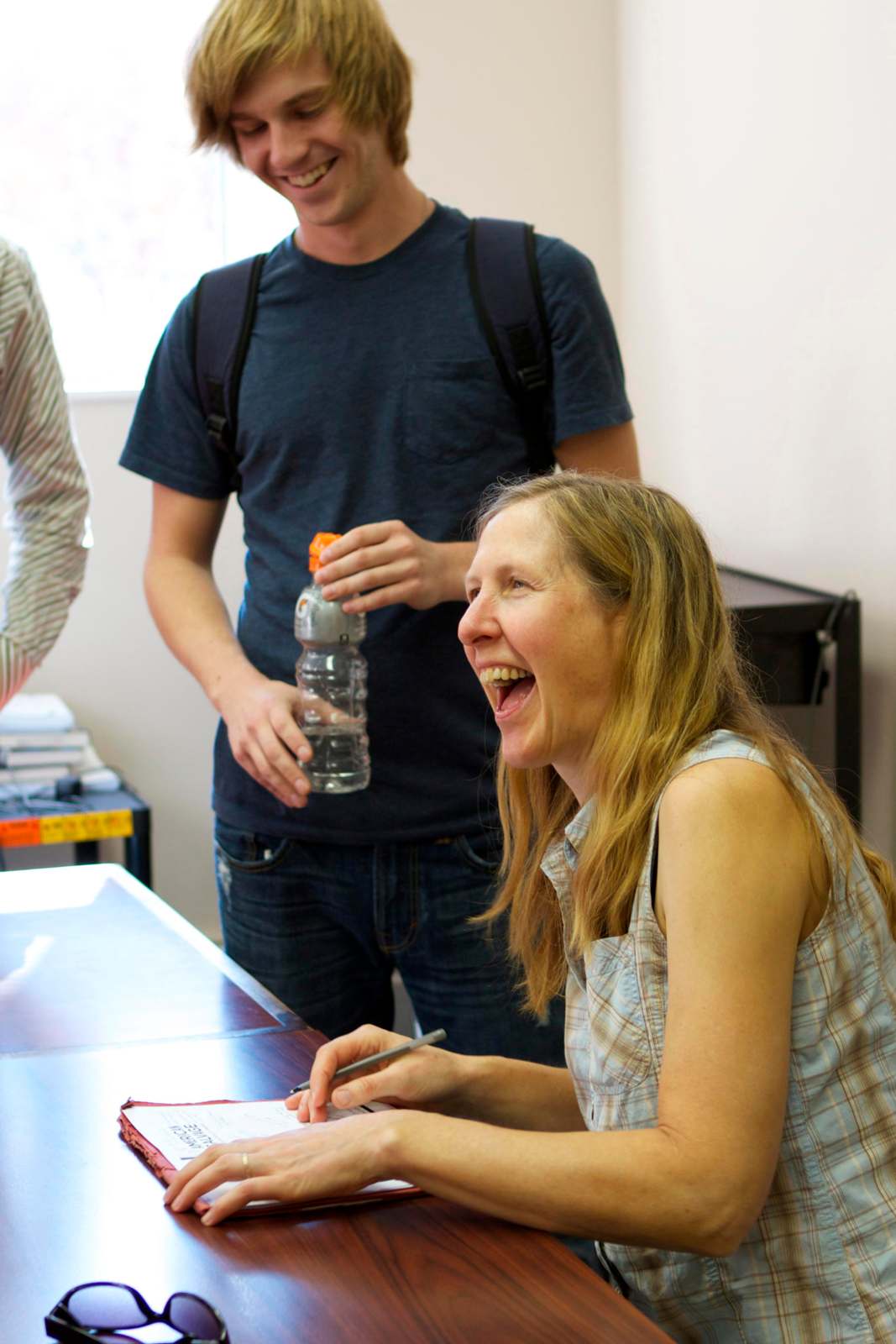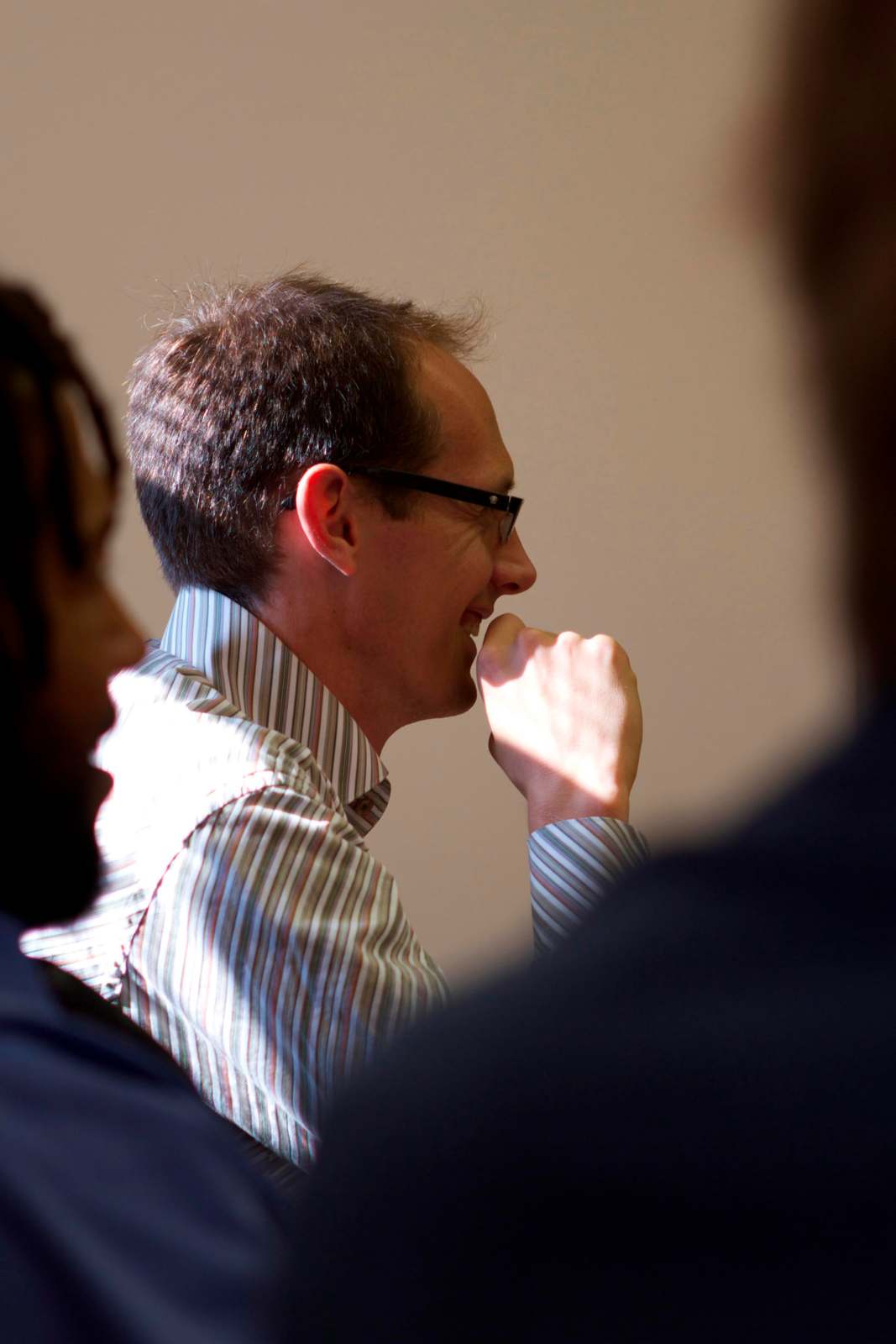Visiting Writer Bonnie Jo Campbell
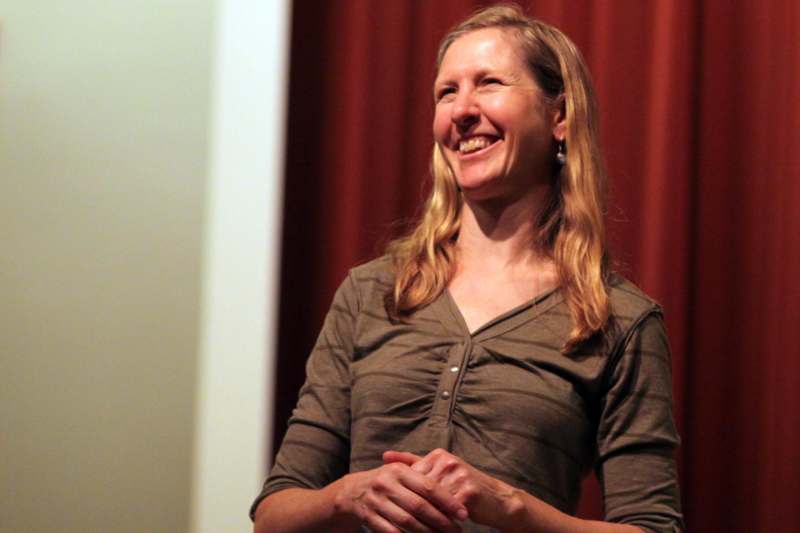
Introducing the writer for her reading in Korb Classroom, Professor Eric Freeze said, 'Her characters have the psychological complexity of real human beings who have to deal with contemporary life and its apparent contradictions. Reading her work I often feel like a trespasser in my own home—like I stumbled into my home being lived in by someone else.Those characters could be me.'
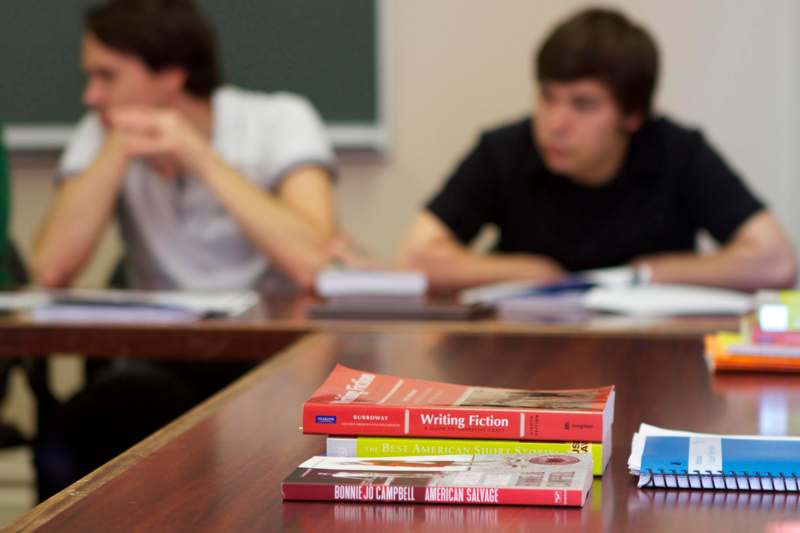
Asked, 'Who were your major influences?', Campbell replied: 'I’ll tell you, but I don’t know if you should believe me. We say we’re influenced by the people we admire, but I don’t know if that’s true. I’m inspired by Steinbeck, even though he’s a sexist. I love Faulkner, except when I can’t stand him. 'I’m probably mostly influenced by my mom. I’m like a calm version of my mom. She told me these outrageous stories, what’s the craziest thing just happened. So I like to tell the crazy stories, just calmed down. My grandfather told stories, too, but his last line was always, 'Then everybody got along.' Everything was okay. My mom would tell the opposite story using the same material.'
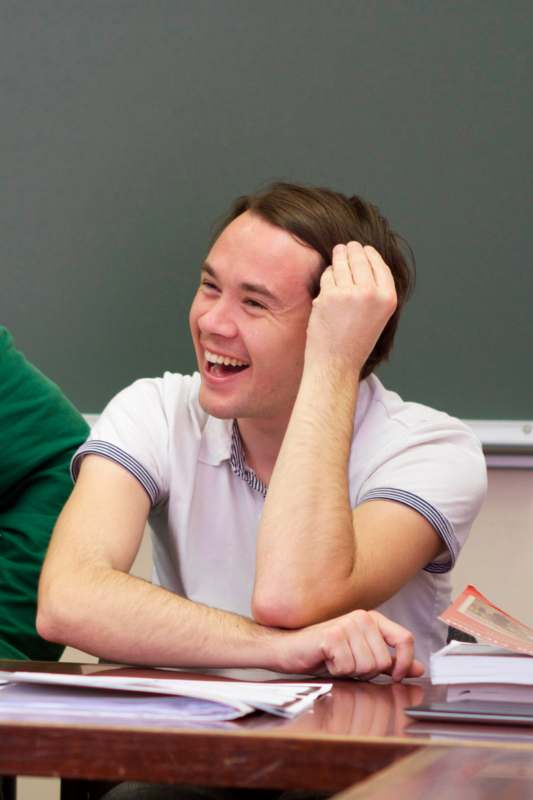
'I really like the Southern writers. Flannery O’Connor, for one. In the Midwest we tend to lock up our weirdos, but in the South they bring ‘em right out on the porch, celebrating the weirdness instead of hiding it away,' Campbell said. 'I come from a town in Michigan where how things appear is very important.'
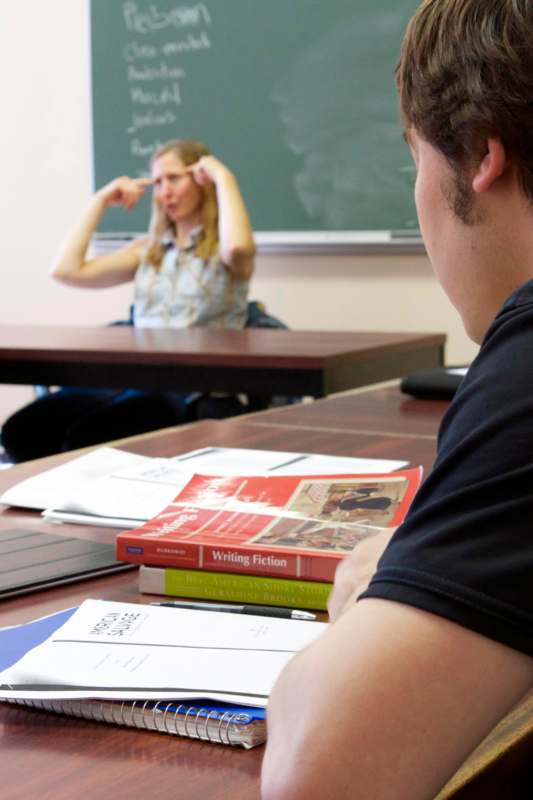
Campbell has a master's degree in mathematics: 'I think writing and doing higher-level mathematics are not completely different. Most of what you do in mathematics is you prove things, you prove theorems. You're showing something is true: you show, using absolutely rigorous mathematical logic, something from beginning to end. In a story, you present a situation and you’re moving through it with a sort of emotional logic. In mathematics it has to be rigorously logical, and fiction needs to be plausible, and interesting enough that people won’t put it down.'
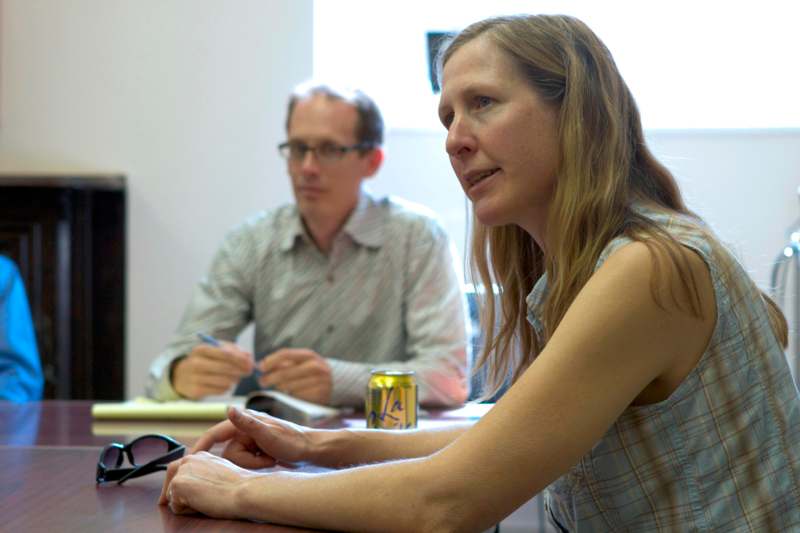
'In math I was often wrong, and I knew it, and I was willing to accept it. That helps in writing: to know that you’re wrong a lot of times, and you have to accept it. I think sometimes on the English side of the campus, we get to bullshitting a lot—we think if we could just talk ourselves around the thing it would become true. So I think [mathematics] helps me as a writer— I’m a good reviser because I can accept that I just didn’t get it; I need to go back and do it better. I’m a very analytical writer after I’ve got a draft.'
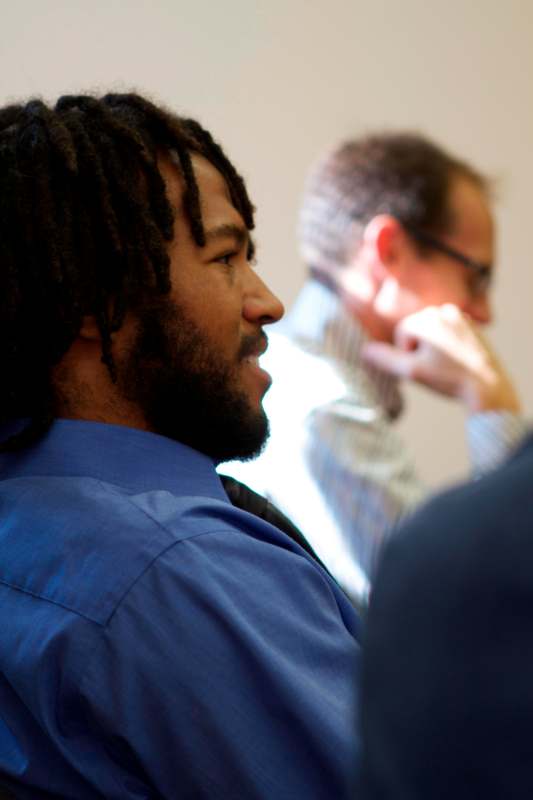
Campbell on public readings: 'It’s so great that anyone goes to a reading. At the last minute, everything else seems more exciting. But I think most of us are always glad when we go to a reading. It's the same with reading in general: We’re always glad when we read a book, even when everything else seems more essential at the time.'
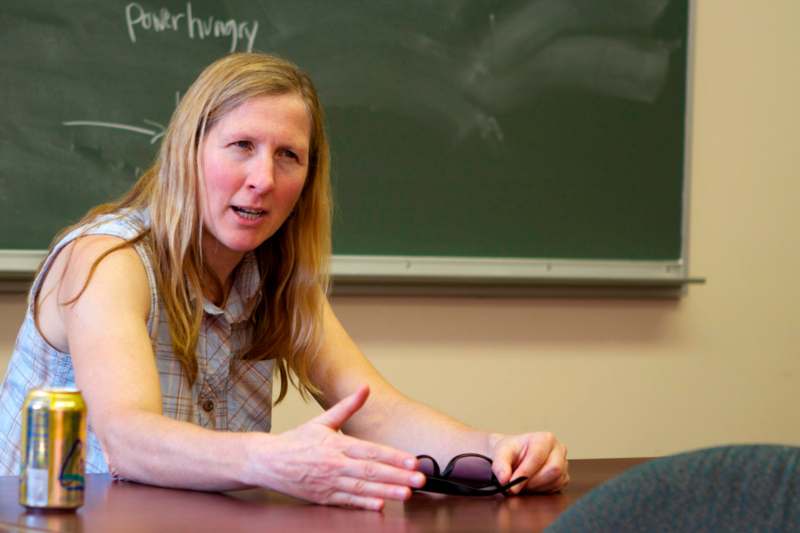
On women and guns: 'Women and men shoot equally well—it’s one of the few sports in which men and women compete together. In a way you can say guns are masculine, and in general more men shoot than women do,’ Campbell said. ‘But what if I ask you, ‘Who was the best shooter you know?’ Several in the audience said, ‘Annie Oakley.’ That’s an interesting thing about America. Annie Oakley is still our best shooter. No one else has so captured our imagination.'
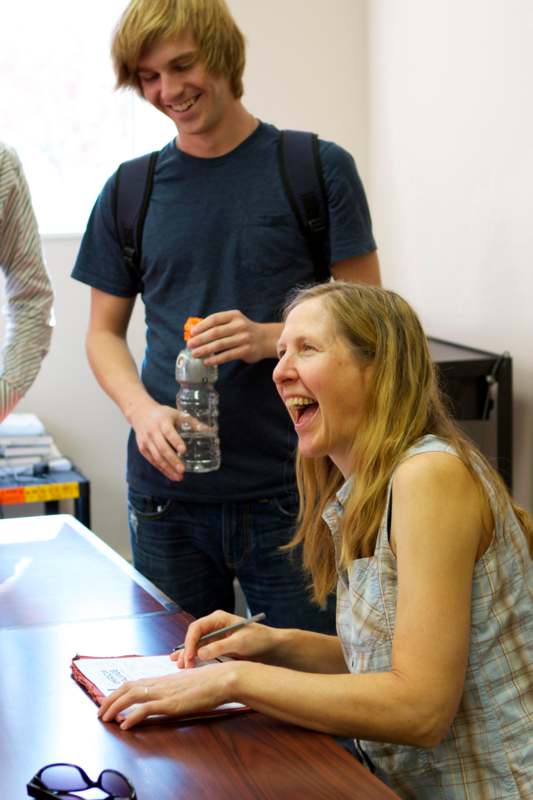
‘I tried not to write. At first people told me to write. I wanted to travel. When I got to high school I loved writing for the newspaper. I just loved it. Then I tried to write and I was bad at it, and I knew it, so I didn’t want to do it. I earned a master’s in mathematics and was going to get a PhD in mathematics. I gave up writing after college, swore I’d never do it again. But whatever else I tried to focus on, I kept coming back to writing. Then I took a really good writing class, it went well, and it all finally made sense.’

